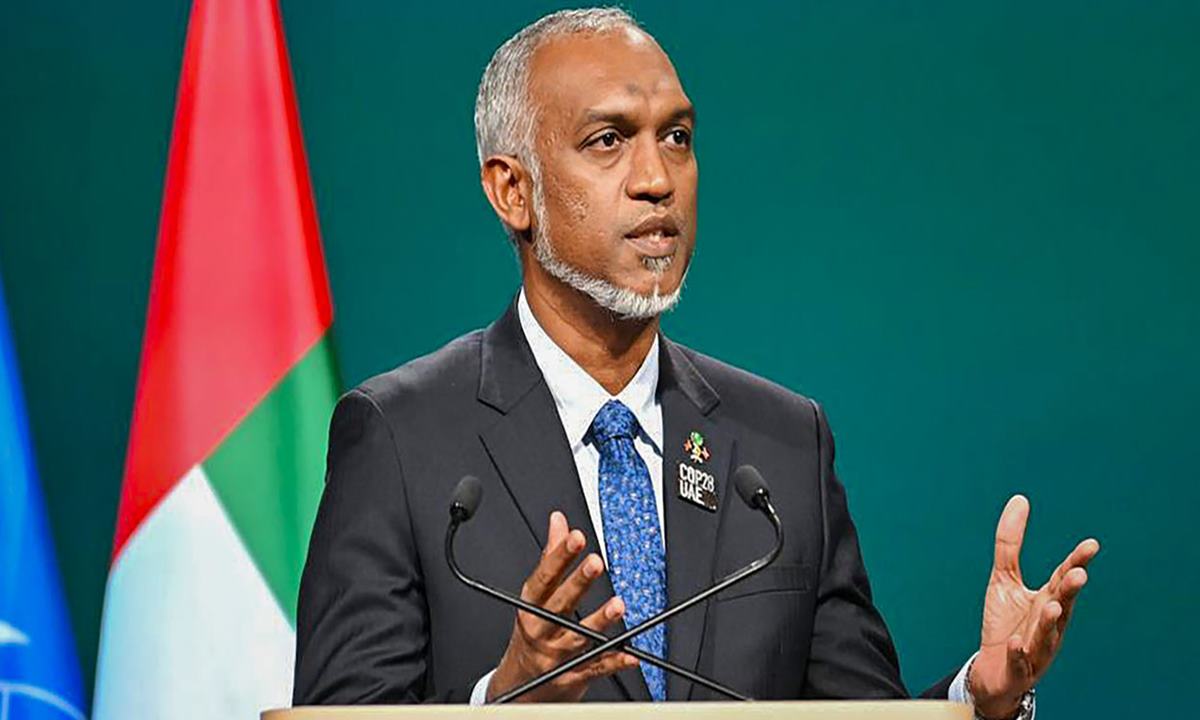Mohamed Muizzu, the president of the Maldives, may become more pro-China if his party, the People's National Congress (PNC), wins resoundingly in yesterday's parliamentary election on the island nation. 66 of the 86 seats for which results have been announced have been won by the PNC, which ran for 90 of the 93 seats in the Maldivian parliament, Majlis. In the House, this is more than a two-thirds majority.

Mohamed Muizzu, the president of the Maldives, may become more pro-China if his party, the People’s National Congress (PNC), wins resoundingly in yesterday’s parliamentary election on the island nation. 66 of the 86 seats for which results have been announced have been won by the PNC, which ran for 90 of the 93 seats in the Maldivian parliament, Majlis. In the House, this is more than a two-thirds majority. As a result, President Muizzu—who is viewed as antagonistic to India—will be able to get legislation through the legislature. Since President Muizzu was elected to the top position last year, New Delhi has been observing Male’s tilt towards Beijing; therefore, the seat total is concerning.
The Significance Of This Result:
The Majlis has the authority to stall presidential decisions and supervise the Maldivian executive. The PNC was a member of an alliance that was in the minority in the House prior to this election. This indicated that Muizzu lacked the political clout to enact laws, despite his position as president. The Maldivian Democratic Party (MDP), which had 41 members and was led by Muizzu’s pro-India predecessor, Ibrahim Mohamed Solih, then controlled the Majlis. With victories in just twelve seats, the MDP is expected to suffer a humiliating loss this time around.
Previously, Muizzu’s anti-India stance was openly criticized and noted by opposition members, even as the MDP-dominated House blocked several of his initiatives. “He (Muizzu) came to power on a promise to send back Indian troops, and he is working on it,” a top aide to the politician previously told news agency AFP. Parliamentary cooperation has been lacking. It is altered by this outcome. Muizzu’s intentions to increase economic ties with China were perceived as being put to the test with this election. Major infrastructure contracts have been given to Chinese state-owned businesses by the president since he took office. Most of his challenges should be addressed by his party’s electoral triumph.
Men’s Increasing Propensity To Beijing:
With Beijing being the focus of more attention on the island ever since Muizzu’s election as president last year, New Delhi has been wary of this trend. President Xi Jinping of China was greeted by Muizzu during a visit to Beijing shortly after his election. We may be small, but that doesn’t give them the right to intimidate us, he added upon his return. His comment was interpreted as a jab at India, even though he did not mention any specific nation. In addition, President Muizzu called for the departure of the eighty or so Indian soldiers who were stationed on the island to carry out humanitarian assignments.
Nonetheless, when Muizzu stated “India will remain the Maldives’ closest ally” and acknowledged India’s financial support for Male last month, it seemed like he was reaching out. At the end of the previous year, the Maldives owed India over $400.9 million.
As of now, India has played down the tense relations and taken a measured stance. After Muizzu’s election, when asked about the relationship between New Delhi and Male, External Affairs Minister Dr. S. Jaishankar responded that neighbors depend on one another. The combined power of history and geography is immense. He had stated, “There is no way out of that.” In an era where the Indian Ocean is becoming an extremely important geopolitical zone, China’s efforts to grow its influence in the strategically positioned Maldives are vital to their efforts.

